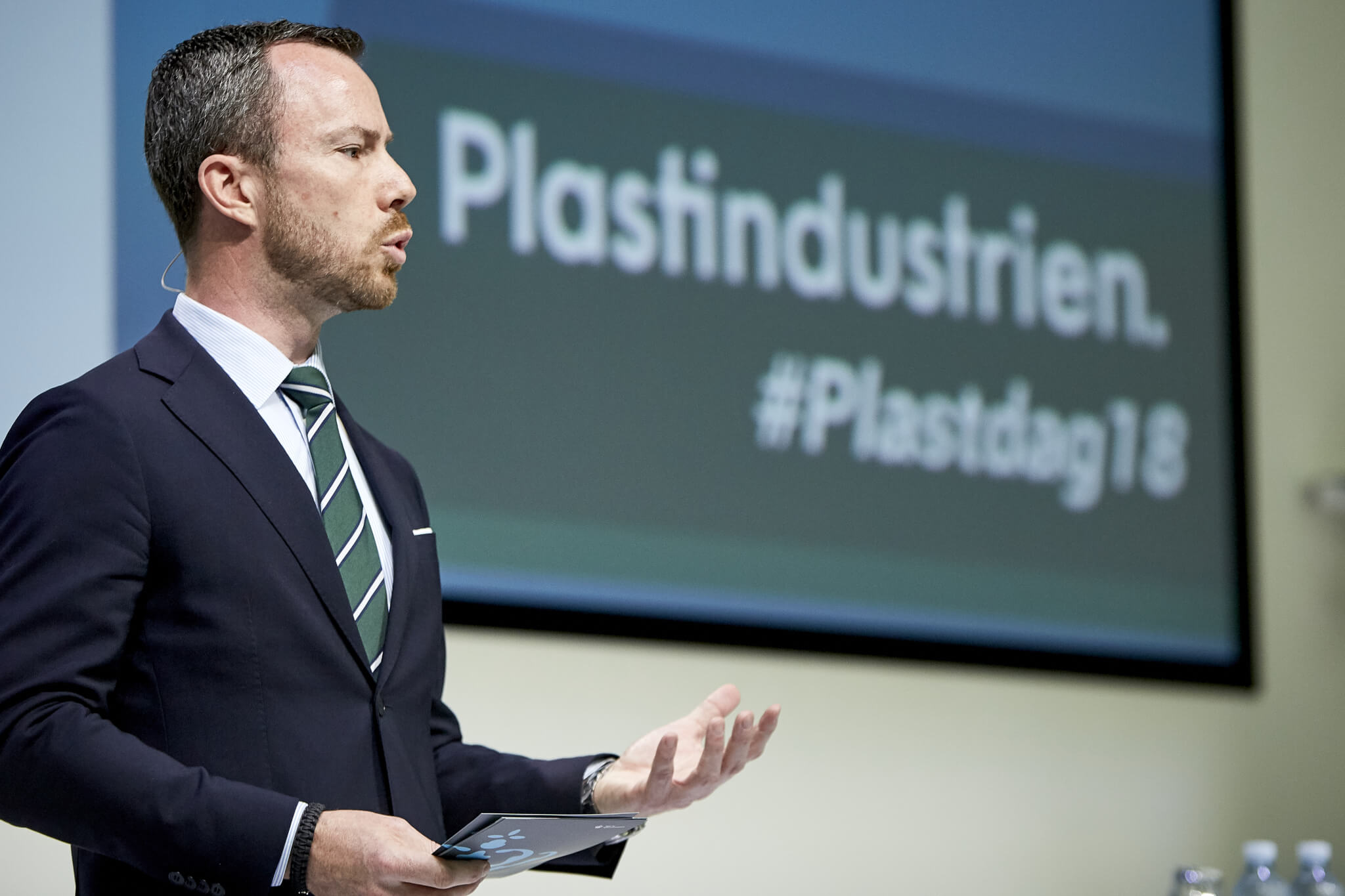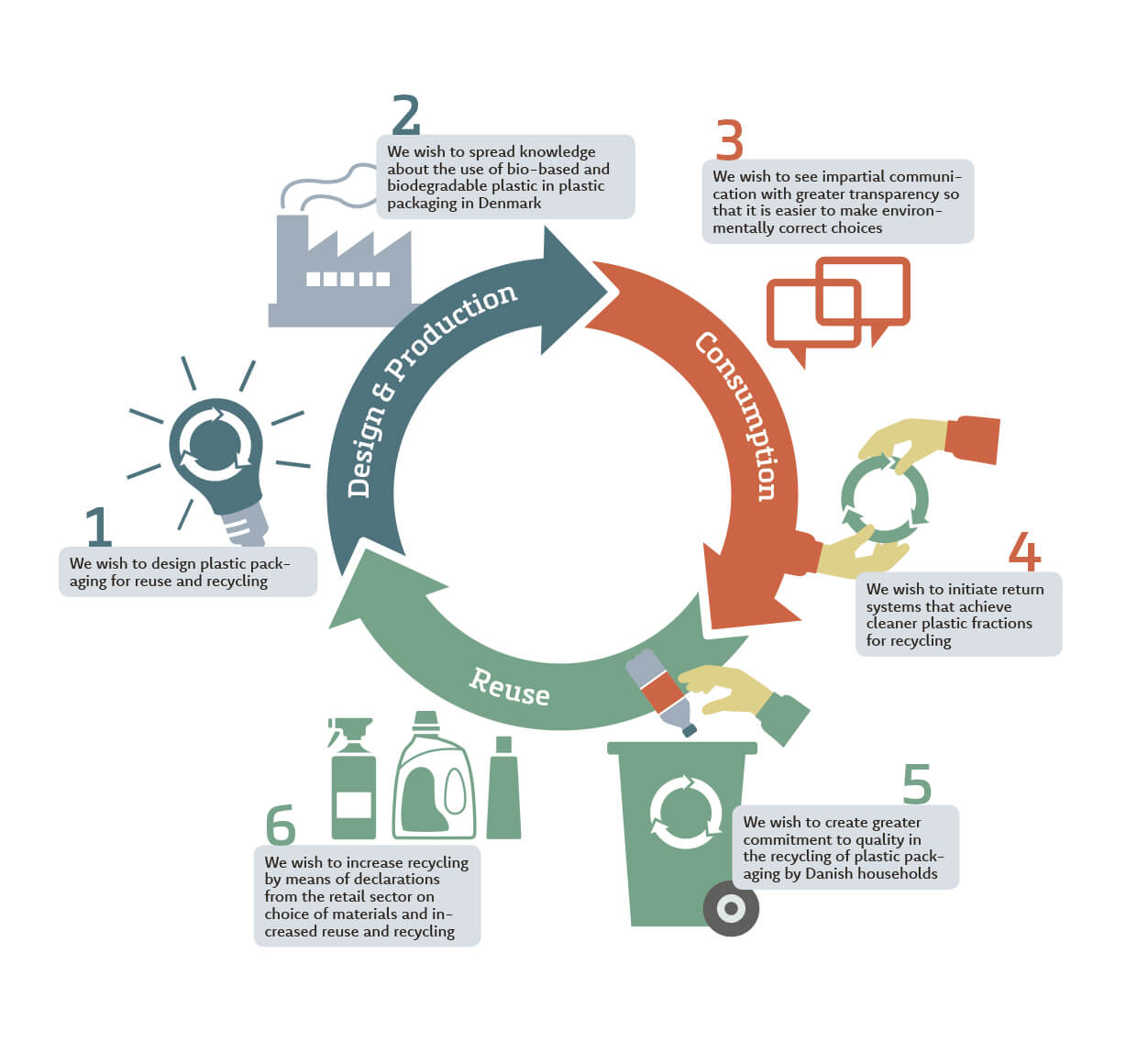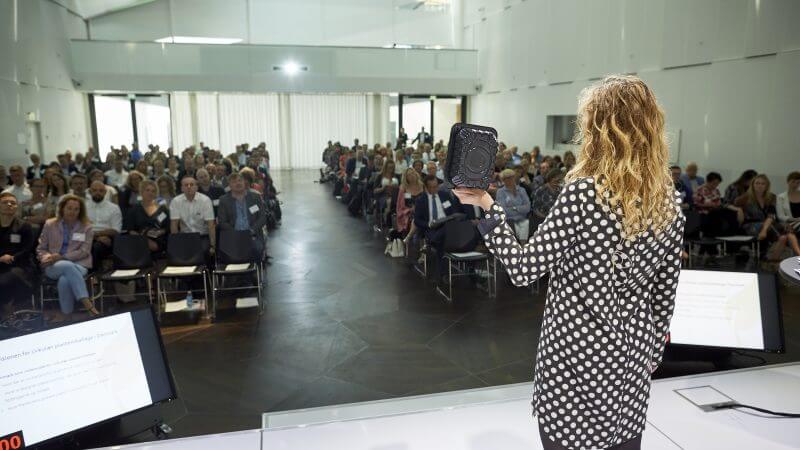Every year, Danes produce 216,000 tons of plastic packaging waste. ‘Forum for circular plastic packaging‘ aims to ensure that this waste is converted into new products, making Denmark a green packaging pioneer. The forum recently launched a recipe that among other things include radical design changes.
For the past year, a long list of different players within the entire packaging value chain have been working intensely on the innovation project ‘Forum for circular plastic packaging‘.
The starting point has been an ambitious vision of making Denmark an international role model for future plastic packaging in a circular economy. The forum has now launched its recommendations.
The Danish Plastics Federation initiated the forum with participation of packaging companies, raw material manufacturers, designers, supermarkets, NGOs, knowledge institutions, recyclers, politicians etc. The results of this joint effort were introduced at a huge event with presentations by the Minister for Environment and Food of Denmark, Jakob Ellemann-Jensen, and other participating companies, organisations and politicians.
I am very proud of the effort, which so many players have put into the work of the forum, and the results from it.
If we want to succeed, we need to cooperate
The Danish Forum for circular plastic packaging has among other things presented a manual of how to radically change the design of packaging focussing on reuse and recycling. Another example is a case study of how consumer waste can be used for new packaging, and a recommendations for how to standardise waste sorting in Denmark.
Christina Busk, Environmental Policy Manager at the Danish Plastics Federation, says:
– There is great unexploited potential in becoming better at recycling plastic packaging—both environmentally and economically. However, it’s not as simple as it may seem and no part of the value chain is able to do it alone. If we want to succeed, we need to cooperate. That has been the basis of Forum for circular plastic packaging. I am very proud of the effort, which so many players have put into the work of the forum, and the results from it.
216,000 tons of waste should be used more efficiently
Sine Beuse Fauerby, Energy and Eco Policy Senior Consultant at the Danish Society for Nature Conservation, agrees. She has been part of the forum’s group of decision-makers and has also participated in various working groups:
– Every year, Denmark generates 216,000 tons of waste from plastic packaging and we recycle far too little of it. I am convinced that we can do better, and with Forum for circular plastic packaging, we have taken the first step in the right direction. Especially our design guide and recommendation regarding a standardised Danish waste sorting system will make a difference, if we succeed in implementing the initiatives, says Sine Beuse Fauerby.

Value for both business and environment
Focusing on reducing the environmental impact of packaging doesn’t just make sense when it comes to our environment. To satisfy the needs of conscious consumers who demand eco-friendly products also makes sense from a business perspective. This is the prediction of COOP, one of the retailers involved in the forum.
CSR Director at COOP, Signe Didde Freese, says:
– Surveys indicate that our customers are extremely concerned about plastic packaging. They clearly demand that we reduce the environmental impact of our packaging. That creates a healthy financial incentive for everyone in the value chain to develop eco-friendly packaging. So it definitely makes sense financially to go green.
COOP has as a direct result of the involvement in ‘Forum for circular plastic packaging‘ signed a declaration on requesting packaging made of special plastic types in order to ease recycling.
The road ahead according to ‘Forum for circular plastic packaging‘:


